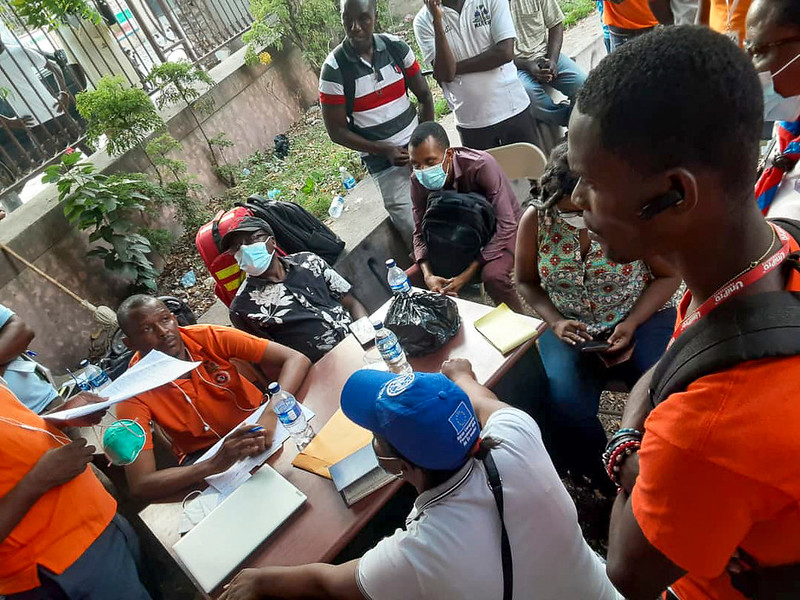
Haiti is by far the poorest country in the Western Hemisphere. Nearly 60 perent of its population lives below the poverty line, and more than a quarter live in extreme poverty, on less than $1.25 a day. After years of humanitarian crisis, isolated families in Grand’Anse department, in Haiti’s southern peninsula, face profound difficulties due to a shortage of resources, lack of economic opportunities, and crop loss resulting from hurricane damage.
This project with longtime BGR partner CARE focuses on building resilience to give families a chance to overcome overwhelming poverty. Using a demonstration-plot model, the project will train 250 women farmers in agricultural techniques to improve families’ abilities to grow nutritious food. The project will also support economic self-reliance for 200 women through the establishment of Village Savings and Loan Associations (VSLAs), following a proven model practiced by CARE throughout Haiti. The groups—usually 20 to 30 people, the majority of them women—pool their savings and then make loans to members to create small businesses and invest in farm production. In addition to promoting financial literacy and economic empowerment, VSLAs are a platform for members to learn about and discuss other topics like nutrition and Covid-19 prevention. Existing partner, new project.

Haiti is by far the poorest country in the Western Hemisphere. Nearly 60 perent of its population lives below the poverty line, and more than a quarter live in extreme poverty, on less than $1.25 a day. After years of humanitarian crisis, isolated families in Grand’Anse department, in Haiti’s southern peninsula, face profound difficulties due to a shortage of resources, lack of economic opportunities, and crop loss resulting from hurricane damage.
This project with longtime BGR partner CARE focuses on building resilience to give families a chance to overcome overwhelming poverty. Using a demonstration-plot model, the project will train 250 women farmers in agricultural techniques to improve families’ abilities to grow nutritious food. The project will also support economic self-reliance for 200 women through the establishment of Village Savings and Loan Associations (VSLAs), following a proven model practiced by CARE throughout Haiti. The groups—usually 20 to 30 people, the majority of them women—pool their savings and then make loans to members to create small businesses and invest in farm production. In addition to promoting financial literacy and economic empowerment, VSLAs are a platform for members to learn about and discuss other topics like nutrition and Covid-19 prevention. Existing partner, new project.

